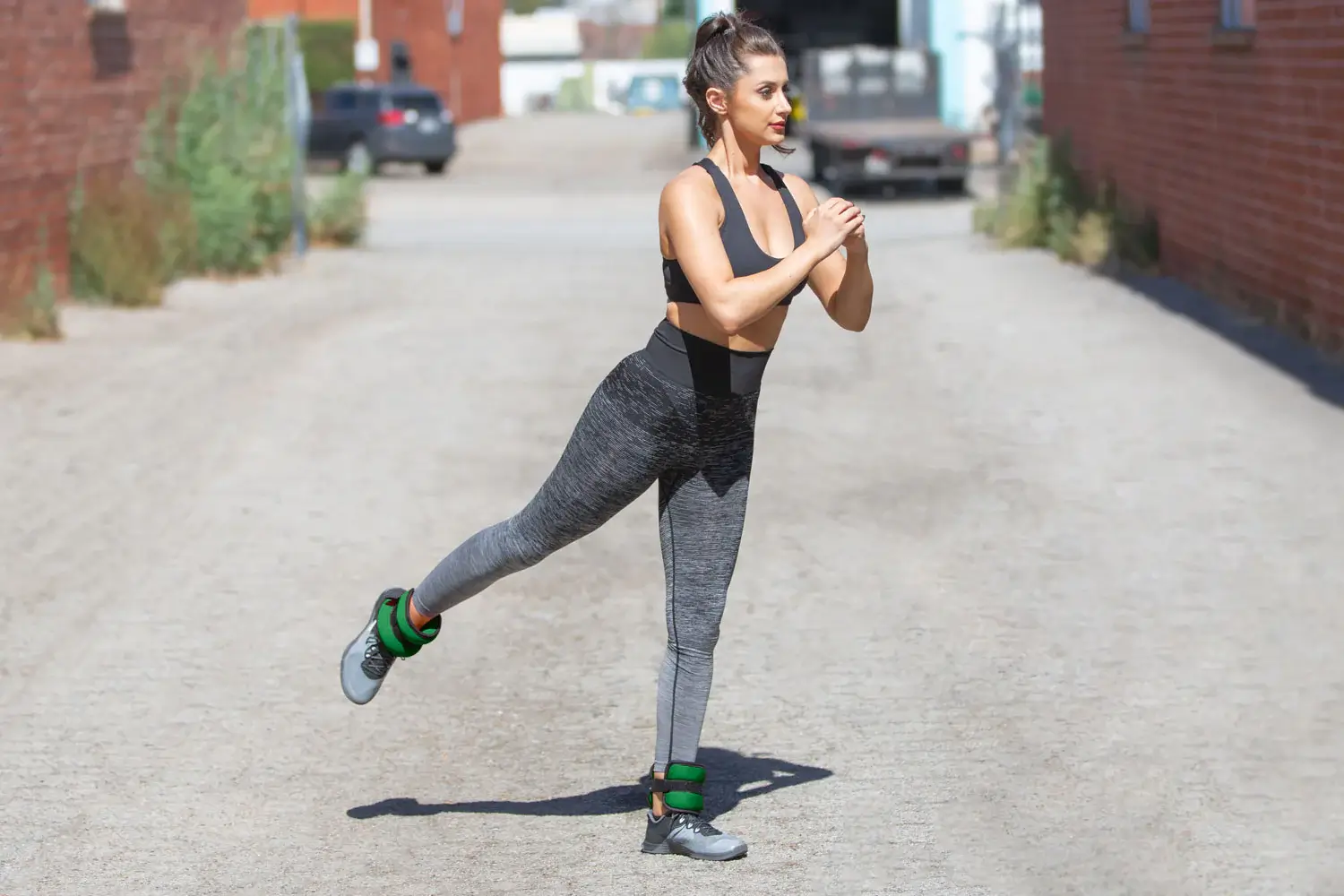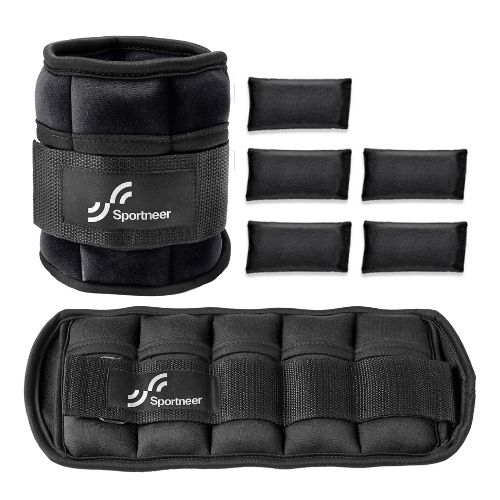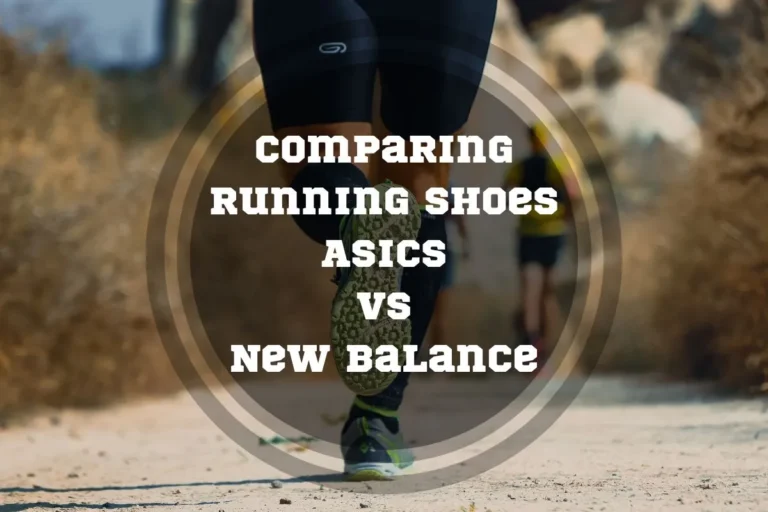Running With Ankle Weights: Benefits and tips from Expert
Are you curious about the potential benefits of running with ankle weights? Whether you’re a seasoned runner or just starting your fitness journey, incorporating ankle weights into your routine can have a significant impact. Discover how running with ankle weights can help you reach your fitness goals faster.
Can running with ankle weights improve the running performance?
Running with ankle weights can be beneficial, but it’s important to do so with caution. Incorporating ankle weights into your running routine can increase the intensity of your workouts, potentially leading to improved strength and endurance. However, it’s crucial to start with light weights and gradually increase the load to avoid putting excessive strain on your joints and muscles.
What Are Ankle Weights for Runners?
Running with ankle weights is a common training aid used to supplement workouts and boost performance. These weights are intended to be worn around the ankles and are frequently constructed of sturdy materials like neoprene or nylon. They range from half a pound to several pounds on each ankle and are available in different sizes.

Pro Tip: So are ankle weights good for running?
As it turns out, the advantages of running with ankle weights are numerous. First of all, it provides more resistance, which may assist in toning and building leg muscles, including the quadriceps, hamstrings, and calves. This is due to the fact that your muscles are forced to work harder during the workout due to the increased resistance.

Pro Tip: So are ankle weights good for running?
As it turns out, the advantages of running with ankle weights are numerous. First of all, it provides more resistance, which may assist in toning and building leg muscles, including the quadriceps, hamstrings, and calves. This is due to the fact that your muscles are forced to work harder during the workout due to the increased resistance.
That being said, it’s vital to start with less weights and gradually increase the load as your muscles adapt and get stronger. To establish the ideal weight and exercise regimen for your particular needs and degree of fitness, it is best to speak with a trainer or fitness expert.
Although ankle weights for running are a great way to increase the intensity of your training regimen, it’s important to use them carefully and in accordance with instructions. They should not be used for prolonged periods or during activities that involve significant impact, since this may overstrain the joints and increase the risk of damage.

4 Benefits of Running with Weights
People often wonder, “Can you run with ankle weights?” The answer is an emphatic yes, as long as you don’t have any joint injuries or other pre-existing health issues that might be exacerbated by doing so. Running with weights, and particularly ankle weights, can offer several benefits for individuals looking to enhance their running routine and overall fitness level. Here are some key benefits of running with ankle weights:
1. Increased Muscular Strength and Endurance
Your quadriceps, hamstrings, and calves will all get stronger and more toned if you wear ankle weights while running. Weights provide extra resistance, which makes these muscles work harder, building strength and endurance. You can efficiently target and engage particular muscle groups while running with ankle weights, which helps you build a more balanced and powerful lower body.
2. Enhanced Cardiovascular Workout
Your cardiovascular training will be more challenging if you run while wearing ankle weights. Your heart rate increases as a result of the increased resistance, making the aerobic workout harder. Since your heart is working harder, running with leg weights can promote better cardiovascular health and efficiency..
3. Improved Running Performance
Regularly including ankle weights in your running regimen can benefit your overall running performance. Your stride length, power, and speed may improve thanks to the increased resistance of the weights
4. Joint and Bone Strengthening
Running with ankle weights can help strengthen your joints and bones. The additional load placed on your leg joints, such as the ankles and knees, stimulates bone growth and density, reducing the risk of osteoporosis and related injuries. However, it’s important to start with lighter weights and gradually increase the load to avoid putting excess strain on your joints.
Risks of Running with Weights
Running with ankle weights has gained popularity as a way to intensify workouts and potentially enhance performance. While there are many benefits of running with ankle weights, it is important to be aware of the potential risks associated with this type of training. Here are some risks you should consider before incorporating ankle weights into your running routine:
1. Increased Joint Stress
Running already places significant stress on your joints, particularly the ankles, knees, and hips. Adding ankle weights can exacerbate this stress, potentially leading to overuse injuries, such as sprains, strains, or stress fractures. The extra weight places an additional burden on these joints, increasing the risk of joint damage over time.
2. Altered Running Mechanics
Running with ankle weights can alter your natural running mechanics. The added weight can disrupt your balance, stride length, and overall gait pattern. This alteration may lead to muscle imbalances and inefficient movement patterns, increasing the risk of injury.
3. Muscle Imbalances
Ankle weights primarily target the muscles in your lower body, particularly the calves, quads, and glutes. As such, relying too heavily on ankle weights for resistance during running can create muscle imbalances. Neglecting other muscle groups, such as the core or upper body, can lead to disproportionate strength development and increase the risk of imbalances, which may contribute to injuries.
Subscribe to Our Running Newsletter!
Get free running tips from renowned professional athletes and discounts from top-notch brands.
Does Running with Weights Make You Faster?
Many individuals wonder whether adding weights to their running regimen can help increase their speed. There are several possible advantages to consider when running with ankle weights. First off, adding weight increases resistance, which can result in more intense muscle activation and strength growth. This could increase lower body strength, as well as lengthen and increase the frequency of strides. Moreover, running with ankle weights can increase the intensity of your workout, raise your heart rate, and improve cardiovascular endurance.
Ultimately, While running with weights can make you faster, it’s also important to weigh the potential risks and consider individual factors such as fitness level and any preexisting injuries.
Comparing the Use of Ankle Weights When Running or Walking: What Is the Difference?
Many also wonder “Does running with ankle weights help in running or walking?”. Ankle weights provide an additional challenge to your normal style of running. Though the use of ankle weights when running or walking might be similar, there are some fundamental differences.
One of the primary benefits of running with ankle weights is the potential to increase the intensity of your workout. By adding resistance to your lower body, you challenge your muscles and cardiovascular system, potentially leading to improved overall fitness.
While running with leg weights may offer benefits, it is also essential to consider potential drawbacks. The added strain on your joints, particularly the knees, and ankles, can increase the risk of injury if not used correctly.
Using ankle weights for walking serves a similar purpose but at a lower intensity. Walking with ankle weights is a low-impact activity that can be beneficial for individuals looking to add resistance to their daily walks.
When walking with ankle weights, the focus is more on toning and strengthening the leg muscles rather than increasing cardiovascular endurance. With the reduced cardio load, walking with ankle weights is usually preferred by newer athletes, as it puts less stress on joints and has a similar effect as running with ankle weights.
3 Tips How to Run Safely with Ankle Weights
Leg weights for running have gained popularity as a way to enhance the effectiveness of your workout and increase strength and endurance. However, it is important to understand how to use ankle weights safely and consider alternative options to avoid potential risks and injuries. Here are some tips to guide you:

1. Start Gradually
If you’re new to running with ankle weights, begin by wearing lighter weights and gradually increase the resistance over time. This allows your muscles and joints to adapt to the added load and reduces the risk of strain or injury.
2. Focus on Form
Maintain proper running form while wearing ankle weights. Keep your back straight and shoulders relaxed, and land softly on the balls of your feet. This helps minimize the impact on your joints and reduces the risk of stress-related injuries.
3. Choose the Right Weight
Select ankle weights that are appropriate for your fitness level and goals. It is generally recommended to start with weights ranging from 1 to 5 pounds. As you become more comfortable, you can gradually increase your weight.
Our Recommendation
Sportneer Adjustable Ankle Weights
These versatile and adjustable weights designed to enhance your fitness routine for personalized intensity and comfort while training.
Material:
High-quality durable construction for long-term use.
Comfort and Fit:
Padded for comfort, Velcro Closure for snug fit.
Weight Type:
Customize intensity with removable weights.
Best For:
Ideal for various exercises and fitness levels.
3 Alternatives to Running with Ankle Weights
If you don’t have an opportunity to use weights or you are just not comfortable with weights on your ankle, here are some alternatives which will help to receive a similar effect, but with no weight.
1. Hill Training
Running up hills naturally adds resistance, engaging your leg muscles without the need for additional weights. It helps build strength and endurance while minimizing the strain on your joints.
2. Interval Training
Incorporate high-intensity interval training into your running routine. By alternating between bursts of intense effort and periods of recovery, you can achieve similar benefits to running with weights without the added stress on your joints.
3. Bodyweight Exercises
Include bodyweight exercises like squats, lunges, and calf raises to your exercise regimen. These exercises effectively strengthen your leg muscles without the need for extra weights.
Remember that not everyone should run with ankle weights. Before adding ankle weights to your exercise program, speak with a healthcare provider if you have any current joint conditions. You can improve your running experience and reach your fitness objectives safely by heeding the advice in this article and ensuring you don’t overstress your body and pre-existing injuries.
Frequently Asked Questions About Running with Ankle Weights
How much weight should I use for running?
It is best to start with less weight and progressively increase the resistance over time to find the ideal ankle weight for running. Beginners often start with weights between 1 and 5 pounds and increase the load as they get stronger. It’s critical to pay attention to your body and make sure the weight isn’t uncomfortable or painful.
Does running with weights tone your body?
Running with ankle weights can help you tone your body, since it adds resistance and works your glutes, quads, and lower leg muscles. The additional weight puts more strain on these muscles, which can result in improved muscular strength and tone.
Should runners wear leg weights?
The use of leg weights when running is a personal choice that depends on individual fitness goals and preferences. Leg weights can add resistance, increase intensity, and potentially improve lower body strength and endurance.
Final Tip for Running with Ankle Weights
In conclusion, while running with ankle weights can provide certain advantages, such as increased muscle engagement and intensity, it’s essential to also consider alternative options and your individual circumstances. Fitness level, joint health, and personal goals are all important factors. Whether you choose to incorporate ankle weights or explore other training methods, maintaining proper form, listening to your body, and prioritizing safety is key for a successful and fulfilling running experience.
Also read:
- 7 Minute Mile
- How Many Minutes Is 4 Miles
- Why Do My Calves Hurt When I Run
- Sub 20 5K Training Plan
- How to Run With Glasses
- Running With A Weighted Vest
- How Many Steps Is A 5K
- How to Lower Heart Rate While Running
References:
- Ankle Weights: Benefits and How to Get the Most Out of Them // Healthline: https://www.healthline.com/nutrition/ankle-weights-benefits
- Effect of Ankle Weights as a Frailty Prevention Strategy in the Community-Dwelling Elderly: A Preliminary Report // PMC: https://www.ncbi.nlm.nih.gov/pmc/articles/PMC9224507/
- The Effect of Ankle Weights on Running Mechanics: A Proposed Methodology // TWU Home: https://twu-ir.tdl.org/handle/11274/13691
- Walking with Weights: Is It a Good Idea? // Healthline: https://www.healthline.com/health/fitness/walking-with-weights
- Should You Buy Walking Weights? // Verywell Fit: https://www.verywellfit.com/before-you-buy-walking-weights-3435435
- The effects of ankle weight loading on the walking factors of adults without symptoms // PMC: https://www.ncbi.nlm.nih.gov/pmc/articles/PMC5667620/
- Wearable weights: How they can help or hurt // Harvard Health: https://www.health.harvard.edu/staying-healthy/wearable-weights-how-they-can-help-or-hurt
- Should You Buy Walking Weights? // Verywell Fit: https://www.verywellfit.com/before-you-buy-walking-weights-3435435
If you have any questions or suggestions, you can contact us via email – [email protected]







